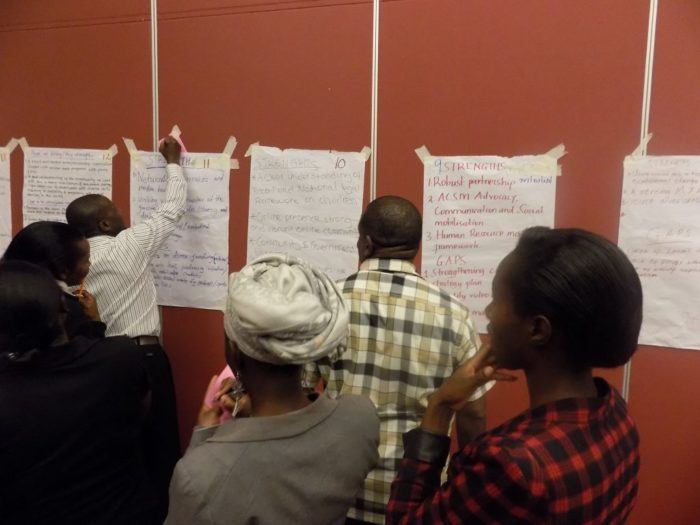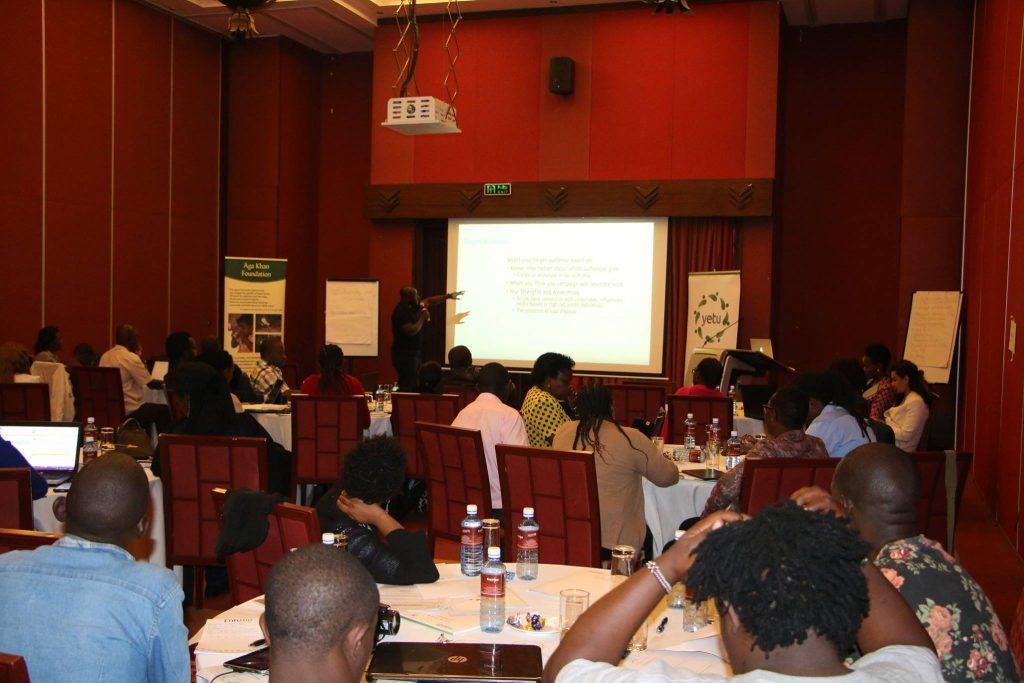In our civil society programs, we highlight the public and private energies that come together for the public good. A key part of that approach is supporting community philanthropy, which means working with communities to develop local solutions to local problems. An example of our approach is a Global Development Alliance with the U.S. Agency for International Development (USAID) in Kenya called the Yetu Initiative. Yetu means “ours” in Kiswahili. This is a post in a series centering on that partnership, and looking at the essential pillars of community philanthropy: assets, capacity, and trust. The work of supporting community philanthropy underlies much of our approach to civil society and building capacity in the communities we partner with. This guest post by Phyllis Ombonyo with Yetu looks at how the initiative strengthens organizations capacity, one of three pillars of community philanthropy: assets, capacity, and trust. See the other posts in the series here and here.
Kenya’s general election in August 2017 posed a test of the existence of the country’s civil society sector, where people establish programs and organize support for local priorities. Amid the tensions, civil society organizations (CSOs) suffer from intimidation over de-registration to police harassment and brutality. That means the citizens of Kenya who are supported by these organizations are also suffering.
We have to ask: Can citizens take the lead in addressing their community’s needs? Can they mobilize their own capital and energies to improve the quality of life for all Kenyans?
We at the Yetu Initiative believe the answer is a resounding “Yes!” Just as Yetu means “ours,” we believe Kenyans are the ones to decide what is best for their communities and support those projects, instead of waiting on outside, foreign organizations to decide what is best. Find out more about Yetu here.
Regardless of the political landscape, we believe Kenyans are in the best position to work together with other Kenyans to improve the quality of life for all.
Boot Camp for Civil Society Groups

The first-ever Yetu Boot Camp in Naivasha, Kenya offered participants the opportunity to collaborate with other civil society leaders.
Civil society works to improve the quality of life in various ways. How many of us have seen the benefits of schools, scholarships, health facilities and economic empowerment programs? Led by citizens with a purpose, those aim to improve the quality of life for all citizens. But how does civil society weather the headwinds of politics? The turbulent times also threaten the funding landscape and the ability of CSOs to survive and offer vital services to our communities. The Aga Khan Foundation and the Yetu Initiative feel we can play a small role in averting this challenge, hence the Yetu Boot Camp.
We designed the boot camp to be as engaging as possible. Yetu is strengthening CSOs to cultivate a culture of community philanthropy through capacity building, research, technology development and private-sector engagement. This will reduce the dependency on donors and promote local ownership. The boot camp is a capacity-building event that helps to advance Yetu’s mission and enhance CSO sustainability.

Mentoring and Coaching for Success
Yetu empowered 14 CSOs with technical knowledge, skills and inspiration to help them succeed in local resource mobilization. The capacity-building approaches involve mentoring and coaching; twinning/peer-learning, experience sharing, role plays, challenges and practical exercises.
At the same time, the boot camp provides an opportunity for comparisons with other capacity-building approaches. We aim to determine the effectiveness of new approaches while evaluating the role of competitions in capacity building.
Through a series of investment incentives, including matching funds and coaching, CSOs receive the tools to thrive and move towards sustaining themselves. Additionally, they get paired to show that partnering or “twinning” can allow two CSOs to work together and not compete for the same donors and resources.
The first Yetu Boot Camp took place June 26-29th, 2017 in Naivasha, Kenya with 14 groups participating:
- Association for the physically disabled of Kenya
- Faraja Cancer Support
- Missing Child Kenya
- Association of Media Women in Kenya
- Federation of Deaf women
- Jani Jipya Initiative
- Kenya Climate Justice Women Champions
- Kenya Women Holding
- Mathare Youth Sports Association Consortium
- NairoBits Trust
- National Organization of Peer Educators
- The Youth Banner
- Vijana Amani Pamoja
- Young Women’s Christian Association of Kenya
Lessons from What Works
The boot camp aimed to inspire action through discussions of highly successful initiatives and evidence of what works. The event provided knowledge on campaign planning and execution with a special focus on execution strategies. It also facilitated twinning/peer-learning among organizations. By the end, each CSO was better able to refine their value proposition, hone their pitch, and start using the M-Changa fundraising platform for online campaigning and fundraising.
The sessions about successful crowdfunding initiatives in Kenya featured Kenyans for Kenyans and Bring Zack Back Home. It also featured presenters from successful public and private partnerships like Safaricom Foundation and M-Changa, with a focus on sharing ideas. One of the challenges that CSOs face is scaling up. Many function at a small scale, but breaking into a medium scale requires a different level of engagements, strong messaging, marketing, and engagement with donors.
This process of scaling becomes particularly problematic in times of political turmoil and a tightening space for CSOs. In such conditions, there is little room for CSOs to experiment and grow. The Yetu Initiative, through programs like the boot camp, builds a community where experimentation, shared learning, and trust-building among CSOs allow them to build a better future together.